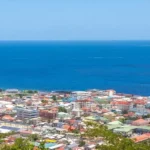When planning to visit or move to Portugal, selecting the right visa is an important first step. There are many different types, each with its own requirements and application criteria, including tourist, work, student, and residency options.
In this article, we’ll break down the visa types for Portugal to give you a better understanding of how to start your Portugal immigration journey, the application processes, eligibility requirements, and key benefits of each visa category.
You can also find out more about:
Do you need a visa for Portugal?

For example, citizens of the United States, Canada, United Kingdom, Australia, and 57 other countries can stay in Portugal for up to 90 days within a 180-day period for tourism, business, or family visits without a visa.
However, since Portugal is part of the Schengen Area, citizens with a passport from other Schengen Area or EU countries don’t need to apply for a visa and can freely enter and exit Portugal for up to 90 days within any 180-day period.
There is a caveat, though. While they still don’t need a visa for stays longer than 90 days, they must register their residence with the local Portuguese authorities if they intend to make Portugal their home.
No Visa Required | No Visa Required for Stays up to 90 Days | Visa Required |
Citizens of EU/EEA/Schengen countries, such as: | Citizens of non-EU/EEA countries that are on the Schengen visa exemption list, such as: | Citizens of non-EU/EEA countries that are not on the Schengen visa exemption list, such as: |
|
|
|
They can live, work, and study in Portugal freely under EU freedom of movement laws. | This applies for tourism, family visits, and business but not for work or long-term stays. | A separate national visa is needed for stays longer than 90 days, like for work or study. |
Portugal Tourist Visa
A Portuguese tourist visa is a short-term Schengen visa that allows non-EU citizens to visit Portugal for tourism, family visits, or leisure purposes. Generally, you must apply for a Schengen tourist visa from the country where you’ll be spending most of your time or from the country where you are planning to enter the Schengen Zone.
- Visa Conditions: visa is valid from one month to two years, but stays are limited up to 90 days within 180 days
- Application Fee: €90
- AIMA extension fee: €34
Portugal Business Visa
A Portuguese business visa is issued for business-related activities such as attending meetings or conferences. It allows the holder to enter and travel within the Schengen Area for a specific period, usually between 1 and 90 days. For example, if you plan to attend the annual Web Summit in Lisbon.
- Visa Conditions: visa is valid from exact dates to two years, but stays are limited up to 90 days within 180 days
- Application Fee: €90
- AIMA extension fee: €34
Portugal Job Seeker Visa
As the name implies, this visa is intended for people who want to enter and remain only in Portugal to look for a job. It authorizes them to carry out a subordinated work activity until the visa expires or until the residence permit is granted. Applicants must secure a job or apply for a residence permit within 120 days, or leave Portugal.
- Visa conditions: visa is valid for 120 days and can be extended for a further 60 days
- Application Fee: €75
- AIMA extension fee: €38
D1 - Portugal Work Visa
The D1 Visa covers a wide range of activities. Also known as the Portugal Work Visa, it is a long-term Type D visa that permits non-EU/EEA citizens to live and work in Portugal. It is specifically intended for individuals who have secured a job offer from a Portuguese employer.
The D1 Visa is typically granted for a year, after which it can be renewed and may eventually lead to a residence permit, allowing the holder to live and work in Portugal long-term.
This visa necessitates proof of employment, a work contract, or an invitation from a Portuguese company, along with other documentation to demonstrate the applicant’s qualifications and suitability for the job.
- Visa validity: one year
- Application Fee: €90
- AIMA Fee: €82
- Reception and analysis fee: €95
D2 - Entrepreneur Visa
The Portugal D2 Visa is a residency visa for entrepreneurs who are not European Union citizens. The Portuguese government introduced the visa to attract businesses or investors who aim to contribute to and grow the Portuguese economy by purchasing existing companies or developing startups.
There’s no minimum investment requirement for the D2 Visa, but you must have sufficient financial resources to establish and run your business while sustaining your livelihood in Portugal for a year.
- Visa validity: four months, extended to two years with an application for a residency permit
- Application Fee: €90
- AIMA Fee: €82
- Reception and analysis fee: €95
D3 - Highly Qualified Activities Individuals Visa
The D3 Visa, also known as the Highly Qualified Activities Individuals Visa, is a long-term residence visa for Portugal that aims to attract highly skilled non-EU/EEA nationals to live and work in Portugal.
This visa is specifically designed for individuals who possess specialized skills, advanced degrees, or substantial professional experience and who have secured employment or a job offer in a highly qualified position, such as in scientific research, technical professions, or managerial roles.
- Visa validity: minimum one year
- Application Fee: €90
- AIMA Fee: €82
- Reception and analysis fee: €95
D4 - Student Visa
The D4 Visa, also known as the Portugal Student Visa, is a long-term visa in Portugal for non-EU/EEA nationals who want to stay for more than 90 days for full-time studies, academic research, or vocational training.
It is aimed at individuals enrolled in higher education programs, such as bachelor’s, master’s, or doctoral degrees at recognized Portuguese institutions, and for those participating in exchange programs or professional internships.
- Visa validity: minimum 90 days
- Application Fee: €75
- AIMA Fee: €82
D5 - Study and Research Visa
Portugal’s D5 Visa is a long-term visa designed for non-EU/EEA nationals who have been accepted into higher education institutions in Portugal for research or highly qualified academic activities, such as teaching at the university level or engaging in scientific research projects.
It is also aimed at students pursuing postgraduate studies or researchers who are involved in academic or scientific projects at recognized Portuguese institutions. The D5 Visa allows individuals to reside in Portugal for the duration of their academic or research activities.
- Visa validity: length of academic activities
- Application Fee: €90
- AIMA Fee: €82
- Reception and analysis fee: €95
D6 - Portugal Family Reunification Visa

This includes spouses or partners recognized by the law, dependent children (including adopted children), as well as the children of the resident’s partner, and children over 18 who are dependent on the main applicant or their spouse/partner. They must also be single and study at a Portuguese educational institution.
- Visa validity: same as the residency holder
- Application Fee: €90
- Reception and analysis fee: €95
D7 - Passive Income Visa Portugal

The visa grants the holder free entry and movement within the Schengen area, as well as the right to reside, work, and study in Portugal. Additionally, under the EU family reunification scheme, the entire family of the visa holder is eligible for residency in Portugal.
After renewing the residence permit for five years, the visa holder can apply for permanent residency and eventually Portuguese citizenship. This citizenship allows the holder to obtain a Portuguese passport and identity documents, provided that the requirements under Portuguese nationality law are met.
- Visa validity: initially two years, renewable for another two years
- Application Fee: €90
- AIMA Fee: €82
- Reception and analysis fee: €95
D8 - Digital Nomad Visa

To qualify, applicants must show that they have a job or business that can be done from anywhere and meet specific income requirements to ensure they can support themselves during their stay. The income threshold usually requires proof of earnings that are at least four times the minimum wage in Portugal, which is at least €3,280, but this amount can vary.
- Visa validity: one year
- Application Fee: €90
- AIMA Fee: €82
- Reception and analysis fee: €95
E8 Seasonal Work Visa

It allows you to live in Portugal for longer than 90 days but shorter than 270 days and specifically work in seasonal employment.
A critical requirement for the E8 Visa is having a work contract or valid work offer for seasonal work with a temporary work company or an employer established in Portuguese territory.
As part of the application criteria, you must submit a letter from the company stating the location, time, type of work, duration, salary, and paid vacation. If it is a regulated profession, then compliance with national legal requirements for that profession is mandatory.
You would also need to prove that you have accommodation or a lease agreement in Portugal. The employer can also provide this if they have staff lodging available. As with all visas for Portugal, you must also provide proof of medical insurance and whether the employer provides work accident insurance.
- Visa validity: 270 days
- Application Fee: €90
- AIMA Fee: €82
- Reception and analysis fee: €95
D9 - Portugal Golden Visa

The investment starts at €250,000 for a donation to an art project or a project preserving Portugal’s national cultural heritage, reduced to €200,000 in low-density areas.
This visa offers opportunities to become a Portuguese citizen and gain a Portuguese passport after five years, provided you meet all the requirements under Portuguese nationality law.
As a Golden Visa holder, you can bring your family members to live, work, and study in Portugal. To include family members in your application, you must provide documents such as marriage and birth certificates.
A key benefit of this visa is the flexibility in the stay requirement; to maintain your legal residency status, you only need to spend an average of seven days per year in Portugal.
- Visa validity: renewable
- Application Fee: €90
- AIMA Fee: €3,023
- Reception and analysis fee: €605
Other Portugal Visas
In addition to tourist, business visas, and the Portugal work visa there are several other C-type visas available for Portugal.
Also known as short-stay visas, these are designed for individuals who wish to visit Portugal and other Schengen Area countries for short periods and are typically issued for specific purposes.
Airport Transit Visa
An Airport Transit Visa allows travelers from certain non-Schengen countries to pass through the international transit area of a Schengen airport without entering the Schengen Area. It is required for travelers who have a layover in a Schengen country while en route to a non-Schengen destination. For example, you’ll need a transit visa if you are flying through Portugal to a non-Schengen Area country like the United Kingdom.
Cultural Purposes Visa
This tourist visa is for people planning to travel to Portugal to participate in cultural, sports, religious, or film-related activities within a Schengen member country. It allows the holder to enter and travel within the Schengen area for a specific period, usually between 1 and 90 days, for example, when performing in a concert or a film festival.
Medical Visa
The Schengen Medical Visa is designed for individuals seeking treatment in one of the Schengen countries. If you want to benefit from Portugal’s healthcare system, this visa allows the holder to enter and stay in the country for the duration of their treatment, ranging from a few days to several months. To apply for this visa, individuals must provide proof of their medical condition, such as a doctor or hospital letter, and evidence of adequate health insurance coverage.
Official Visit Visa
An Official Visit Visa is intended for official delegations, government officials, and diplomats visiting Portugal on official business, including attending conferences, meetings, or signing agreements. To apply, the individual or organization must provide an official invitation letter from the Portuguese government or a relevant Portuguese organization and proof of their official status. They must also provide evidence of adequate financial means and valid medical insurance.
Spouse Visa of Portuguese Citizen
The Portugal Visa for the spouse of a Portuguese national is a specific visa that allows the spouse of a citizen to enter and reside in the country. The individual must be married to a Portuguese national and provide proof of their marriage and their spouse’s Portuguese citizenship. They must also provide evidence of adequate financial means and valid insurance coverage. The visa is usually issued for one year, but you can renew it if the marriage is still valid.
Amateur Sports Activity Visa
For individuals who wish to engage in amateur sports activities, Portugal offers a short-stay visa for non-EU/EEA nationals who wish to enter Portugal to participate in short-term amateur sports events, tournaments, or competitions. It allows for a stay of up to 90 days within a 180-day period, and applicants must provide evidence of their participation in the sports event, such as an invitation letter from the organizing sports club or association, proof of registration in the competition, or a detailed itinerary of the sports activity.
Portuguese Citizenship
Non-EU nationals planning to stay in Portugal for over three months need to apply for a residence permit. The first residence permit granted is typically valid for two years and can be renewed for three years therafter. While EU citizens do not need a residence visa, they are still required to register with AIMA if they plan to remain in Portugal for more than three months.
After residing in Portugal for five years, you may qualify for permanent residency. Additionally, after this period, you can apply for Portuguese citizenship. In certain situations, such as being married to a Portuguese citizen, you may be eligible to apply for citizenship earlier.
Why choose Global Citizen Solutions for your Immigration Visa?
GLOBAL APPROACH BY LOCAL EXPERTS
- GCS has offices located across Portugal.
- Members of the US-Portugal and UK-Portugal Chambers of Commerce in Portugal, and the Investment Migration Council (IMC).
- Our expert team can help you throughout your journey to secure your Visa.
100% APPROVAL RATE
- Our successful track record in applications provides reassurance to applicants.
- We have helped clients from more than 35 countries secure residency in Portugal.
ALL-ENCOMPASSING SOLUTION
- With a single channel of communication, our approach ensures that you have complete clarity on your application.
- Our BeGlobal® Onboarding System allows for a total flow of information.
TRANSPARENCY AND PRIVACY
- Our pricing is clear and detailed, you will not face any hidden costs.
- All data is stored within a GDPR-compliant database on a secure SSL-encrypted server.

Frequently Asked Questions About Portugal Visas
What are the Portugal immigration visa types?
Portugal offers several visa types for immigration, including the D7 Visa for retirees and passive income holders, the D8 Digital Nomad Visa for remote workers, and the D2 Entrepreneur Visa for business owners. Other options include the D1 Work Visa, the Golden Visa for investors, and the Study Visa for students.
What categories of visas are available for Portugal?
Generally, all visas for Portugal will fall into one of three categories:
- Short-Stay (Schengen) Visa (C-Type): For stays up to 90 days for tourism, business, family visits, short-term study, cultural events, and medical treatment.
- Long-Stay Visa (D-Type): For stays longer than 90 days for work, study, family reunification, research, or retirement.
- Special Visas: The Golden Visa for investors, Digital Nomad Visa, and Job Seeker Visa.
How do I apply for a visa to Portugal?
You must apply at the Portuguese consulate or embassy in your home country. The process involves submitting a completed visa application form, a valid passport, photographs, proof of travel insurance, accommodation details, and evidence of financial means.
What are the health insurance requirements for a Portuguese visa?
For both short and long-stay visas, you must provide proof of travel or health insurance that covers medical expenses, including emergency services, hospitalization, and repatriation, with a minimum coverage of €30,000.
What is the difference between Portugal's short-term and long-term visas?
The main difference between Portugal’s short-term and long-term visas is their duration and purpose. Short-term visas, like the Schengen Visa, allow stays up to 90 days for tourism or business. Long-term visas, such as the D7 or D8 Visa, permit stays over 90 days for work, study, or residency.
What visa do I need to live in Portugal?
To live in Portugal, you need a long-term visa, such as the D7 Visa for retirees or passive income earners, the D8 Digital Nomad Visa for remote workers, or the D2 Visa for entrepreneurs. Investors can apply for the Golden Visa, while employees require a D1 Work Visa.
Can I get a visa to stay in Portugal for six months?
Yes, you can get a visa to stay in Portugal for six months. The Temporary Stay visa is for non-EU/EEA nationals who wish to stay in Portugal for more than 90 days but less than one year. It can be granted for various reasons, such as study, research, professional training, medical treatment, or volunteer work.
What is the easiest visa to obtain for Portugal?
The easiest visa to obtain for Portugal is the D7 Visa, designed for retirees and passive income earners. It requires proof of stable income, such as pensions or investments, and offers a straightforward application process with a path to residency and citizenship.


